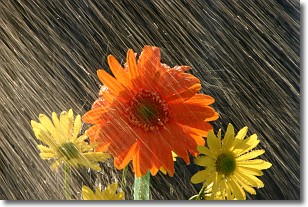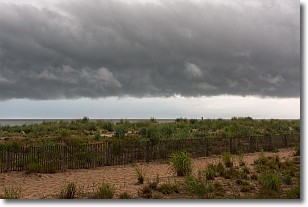Weather Alert in North Carolina
Flash Flood Warning issued August 20 at 4:42PM EDT until August 20 at 10:45PM EDT by NWS Blacksburg VA
AREAS AFFECTED: Alleghany, NC; Ashe, NC; Wilkes, NC; Grayson, VA
DESCRIPTION: FFWRNK The National Weather Service in Blacksburg has issued a * Flash Flood Warning for... Western Alleghany NC County in northwestern North Carolina... Eastern Ashe County in northwestern North Carolina... Northwestern Wilkes County in northwestern North Carolina... Southwestern Grayson County in southwestern Virginia... * Until 1045 PM EDT Wednesday. * At 442 PM EDT, Doppler radar indicated thunderstorms producing heavy rain across the warned area. Between 4.5 and 5.5 inches of rain have fallen. The expected rainfall rate is 3 to 5 inches in 1 hour. Additional rainfall amounts of 1 to 2 inches are possible in the warned area. Flash flooding is ongoing or expected to begin shortly. HAZARD...Life threatening flash flooding. Thunderstorms producing flash flooding. SOURCE...Radar. IMPACT...Life threatening flash flooding of creeks and streams, urban areas, highways, streets and underpasses. * Some locations that will experience flash flooding include... Jefferson... West Jefferson... Lansing... Glendale Springs... Laurel Springs... Mouth Of Wilson... Mc Grady... This includes the following streams and drainages... Elk Creek, Crab Fork, Grassy Creek, Bridle Creek, Call Creek, Bear Branch, Darnell Creek, Fox Creek, Clear Branch, Beaver Creek, Dog Creek, Helton Creek, Big Horse Creek and Church Branch.
INSTRUCTION: Turn around, don't drown when encountering flooded roads. Most flood deaths occur in vehicles. When it is safe to do so, please send your reports of flooding, including mudslides or flooded roads, to the National Weather Service by calling toll free at 1...8 6 6...2 1 5...4 3 2 4. Reports and pictures can also be shared on the National Weather Service Blacksburg Facebook page and on X.
Want more detail? Get the Complete 7 Day and Night Detailed Forecast!
Current U.S. National Radar--Current
The Current National Weather Radar is shown below with a UTC Time (subtract 5 hours from UTC to get Eastern Time).

National Weather Forecast--Current
The Current National Weather Forecast and National Weather Map are shown below.

National Weather Forecast for Tomorrow
Tomorrow National Weather Forecast and Tomorrow National Weather Map are show below.

North America Water Vapor (Moisture)
This map shows recent moisture content over North America. Bright and colored areas show high moisture (ie, clouds); brown indicates very little moisture present; black indicates no moisture.

Weather Topic: What is Precipitation?
Home - Education - Precipitation - Precipitation
 Next Topic: Rain
Next Topic: Rain
Precipitation can refer to many different forms of water that
may fall from clouds. Precipitation occurs after a cloud has become saturated to
the point where its water particles are more dense than the air below the cloud.
In most cases, precipitation will reach the ground, but it is not uncommon for
precipitation to evaporate before it reaches the earth's surface.
When precipitation evaporates before it contacts the ground it is called Virga.
Graupel, hail, sleet, rain, drizzle, and snow are forms of precipitation, but fog
and mist are not considered precipitation because the water vapor which
constitutes them isn't dense enough to fall to the ground.
Next Topic: Rain
Weather Topic: What are Shelf Clouds?
Home - Education - Cloud Types - Shelf Clouds
 Next Topic: Sleet
Next Topic: Sleet
A shelf cloud is similar to a wall cloud, but forms at the front
of a storm cloud, instead of at the rear, where wall clouds form.
A shelf cloud is caused by a series of events set into motion by the advancing
storm; first, cool air settles along the ground where precipitation has just fallen.
As the cool air is brought in, the warmer air is displaced, and rises above it,
because it is less dense. When the warmer air reaches the bottom of the storm cloud,
it begins to cool again, and the resulting condensation is a visible shelf cloud.
Next Topic: Sleet
Current conditions powered by WeatherAPI.com




